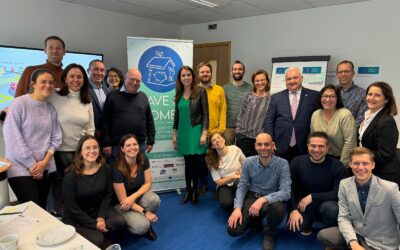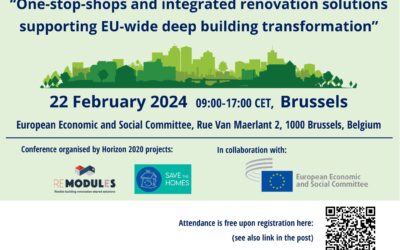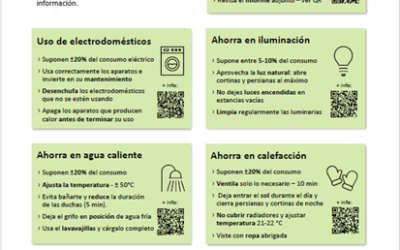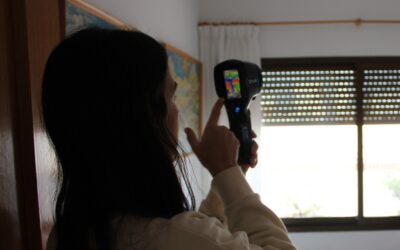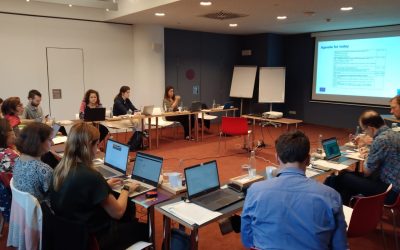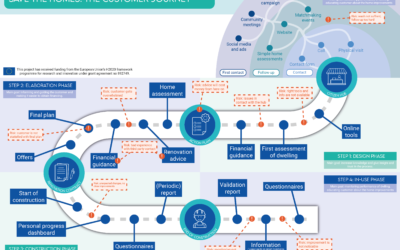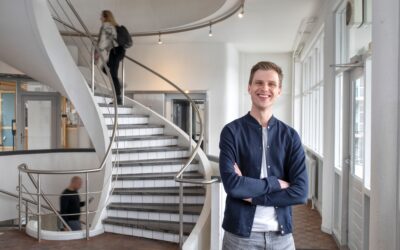To support our pilots with communication material, we conducted interviews with people from the renovation industry, in particular people who have changed jobs. We asked them about their experiences and motivations. This week: Rieks Weerman, reitred civil engineer, now voluntary energy coach.
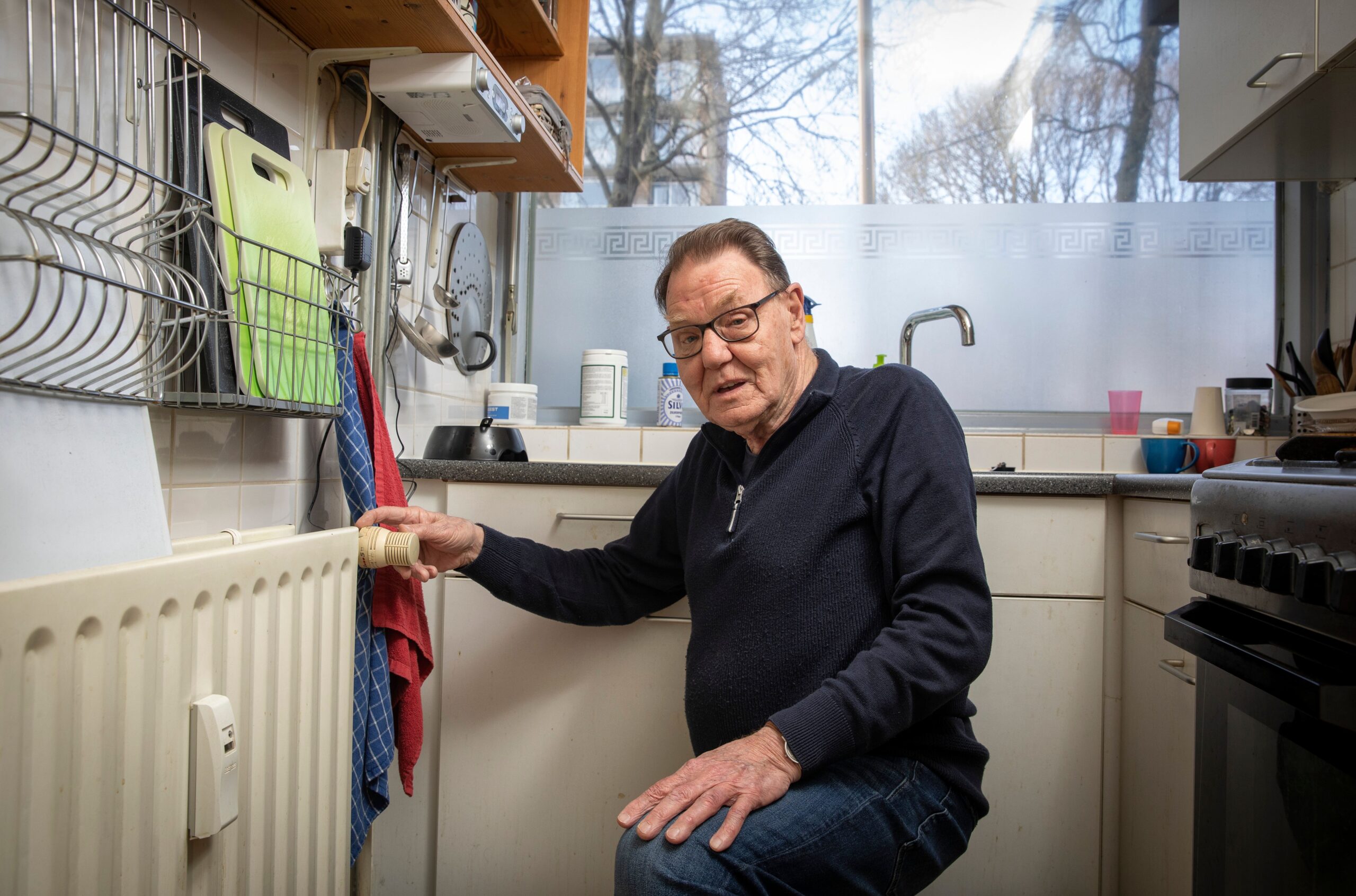
Mr Rieks Weerman is a retired civil engineer who lives in Rotterdam, the Netherlands. But sitting still doesn’t give you any energy, and to stay involved he has become an energy coach. In this role, he helps people reduce their energy bills by advising on behavior and installations. In addition, he continues in his involvement in the neighborhood by actively supporting the sometimes complicated process with authorities.
Can you tell us about yourself?
I started as a carpenter in 1960. Later I started working on rate calculation and work preparations. The first was new at the time, not everyone was open to, for example, time standards.
In 1973 I met my wife at the urban development department. Later I received a nice offer to work for one of the largest restoration contractors in the Netherlands. After a merger, I no longer felt the need to stay with that company and I switched to another construction company. So in June 1976 we ended up in Heerenveen, where we lived for a few years. In 1977 I set up my own architectural consultancy, later I continued as a freelancer. In the end we left for Rotterdam because of more opportunities in the west for our disabled daughter. In the meantime I retired and I started to see what I could do. During that time, the complex where I live was also renovated, so I was asked to act as a representative. I did this at Woonstad, when I was involved in the renovation of our flat.
At that moment the realization came that energy is also a very interesting area. I wanted to stay involved after my retirement, and in August 2018 I responded to an advertisement from the Energiebank Rotterdam to start working as an energy coach through them. I wanted to help people and it seemed very helpful to me. I did a short training for that.
What is the Energy Bank Rotterdam?
The Energy Bank Rotterdam is committed to keeping energy accessible to everyone, especially people with a minimum income. We help to reduce energy consumption. This reduces the monthly costs on the energy bill and also reduces CO2 emissions.
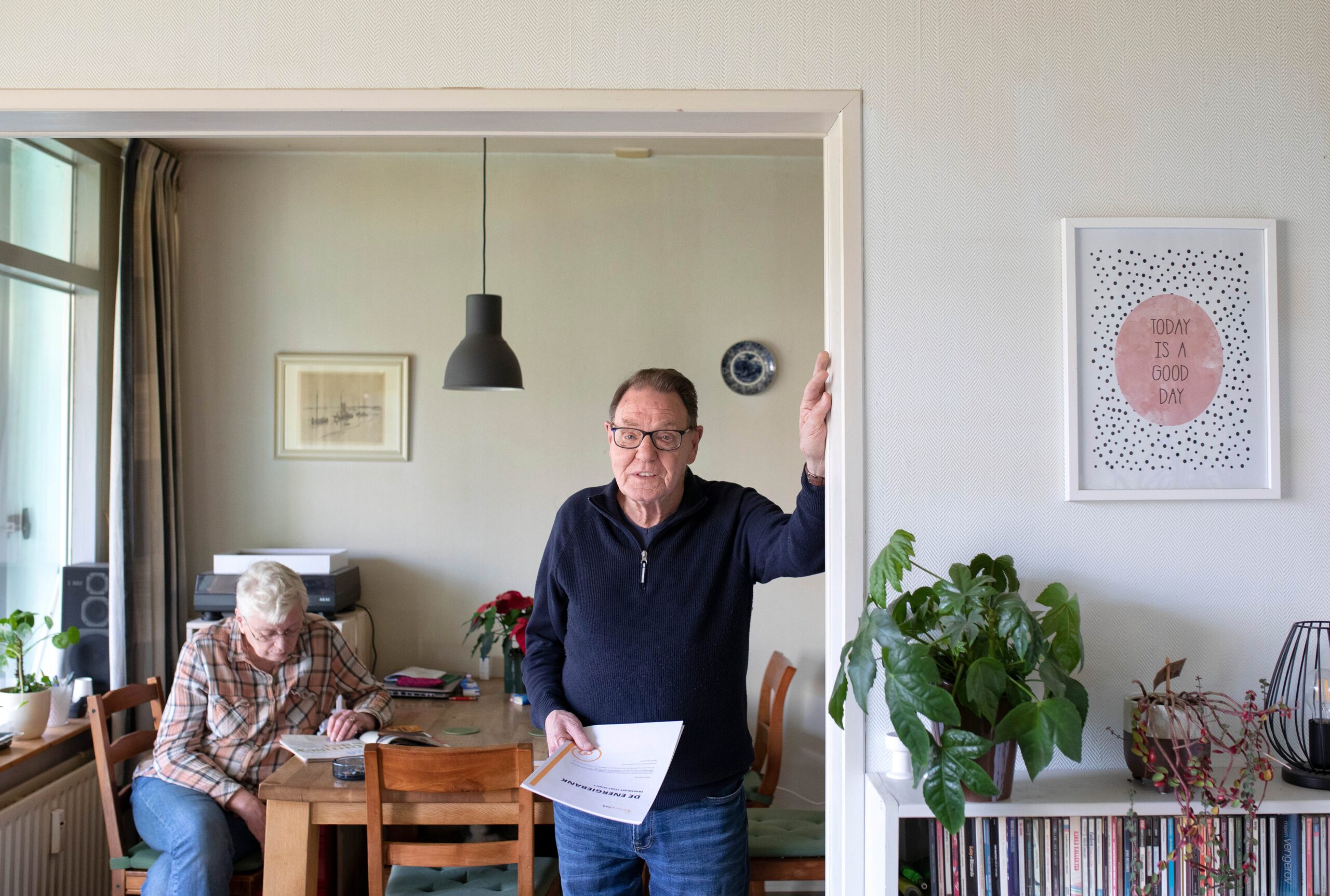
What does an energy coach do?
People submit a question to the Energy Bank, which usually arises from a high energy bill, especially at the moment. As an energy coach I am assigned an address, I visit people’s homes to give advice about energy use. The cause always lies either in the installations or in the behavior of the people. I analyze the problem and give advice.
Recently there was a question from a gentleman who had a very high energy bill, partly because of the shower. We then do the 10-litre test: this is how we determine whether the meters are working properly. They were, but the shower was using a lot of water. We have installed a water-saving shower head and advised to shower for a maximum of 7 minutes. The costs have been halved, with € 40 per month less. That’s a hefty amount.
Another example: last year I went to an older man’s house. He had to pay more and more. I entered, and it turned out that all the doors were open and the heating on maximum. The advice was clear: a behavioral change. But I also have examples where the cause lay in the installations. In that case, we often have to enter into discussions with housing cooperatives. Eventually there will be results, but this can take years. In any case, I never go anywhere once, we try to guide people for about five or six months. Especially when it comes to changing behavior.
What does an energy advice cost?
The Energy Bank is supported by the municipality and is in collaboration with the Duurzaam010 initiative. The service is free, and even the measures taken such as a water-saving shower head or LED lamps are free.
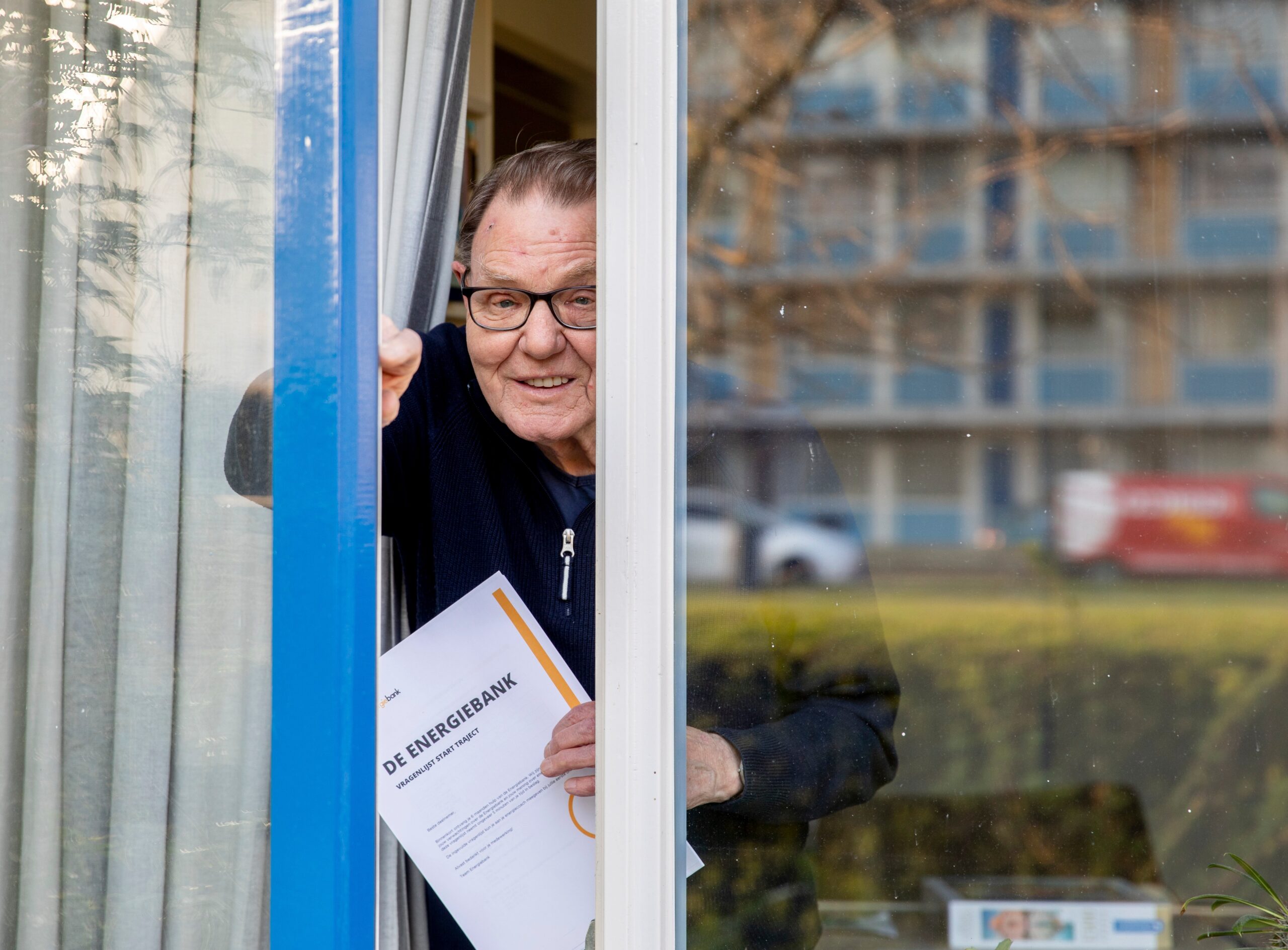
What motivates you the most?
I get energy from convincing people or housing cooperatives that something has to change. People often have to adjust their behavior. The result motivates me the most.
What is the best motivation for behavioral change?
Ultimately, it’s always the wallet. People are interested in sustainability, but the wallet is a lot more concrete. Sustainability is a difficult subject. Certainly if one is under administration, for example, then the priorities are simply different.
Who do you visit?
In general, people in rental apartments. This is also the reason that we mainly talk about behavior and installations, and less about other energy-saving measures, such as insulation. There is simply often no possibility for large-scale renovation.
Most people I help come to the Energy Bank because they think their energy bill is too high, they want to know why. Sometimes they are poorer people and they don’t always speak Dutch very well. The installations are often outdated and when the cause lies in the installations, it is sometimes difficult to get in touch with housing cooperatives, especially within this target group. It is not officially part of the position, but I already have quite a bit of experience in these contacts. I like to help people with the process, I sometimes manage to navigate this better. I have good contact with the housing cooperatives.
For example, I have a disabled daughter myself, and you notice that you sometimes get very bad contact with authorities, while it is easily arranged when a ‘professional’ calls. We do intend to include this support in the courses for future energy coaches.
Finally, why is it good to renovate?
Renovation is not an end in itself. You renovate to solve a problem. This can be, for example, a high energy bill, or a desire for more comfort. By the way, keep in mind that you always keep ventilating, and don’t make the house completely sealed!
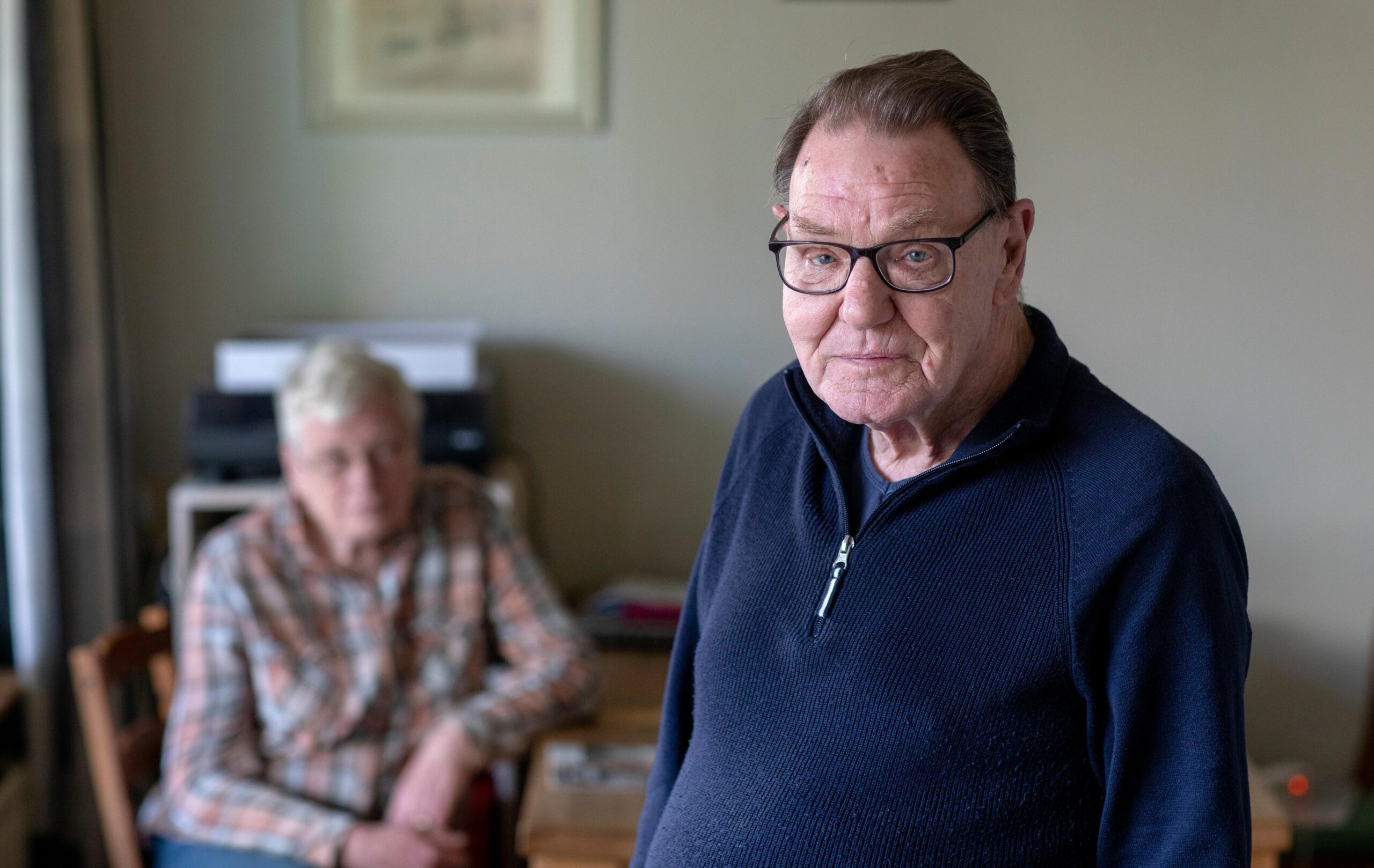
Photograpgy: Eric Fecken Fotografie
Text: Ruben Veneklaas
